In the current issue, we present Linda Rammes' award-winning master's thesis, which aims to strengthen the narrative of a socially and ecologically responsible society. In the interview, she describes design as political influence: climate policy, social and, not least, design concerns are inextricably interwoven. Her practical and application example with the meaningful title "Furore - online magazine for climate protest" proves this.
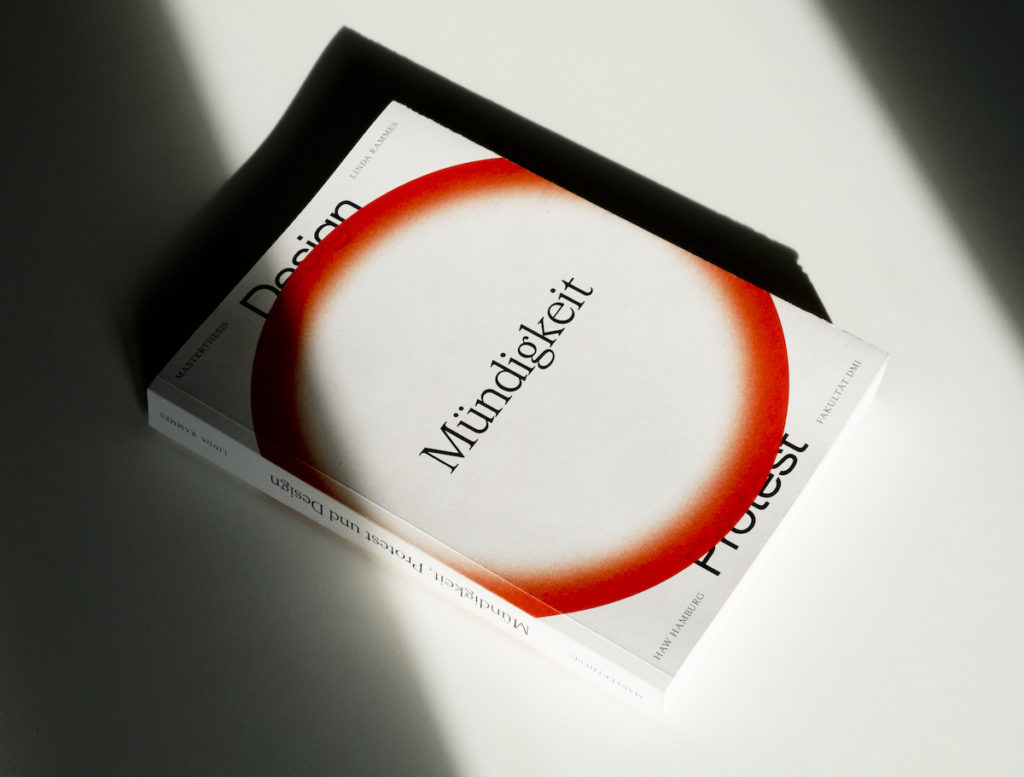
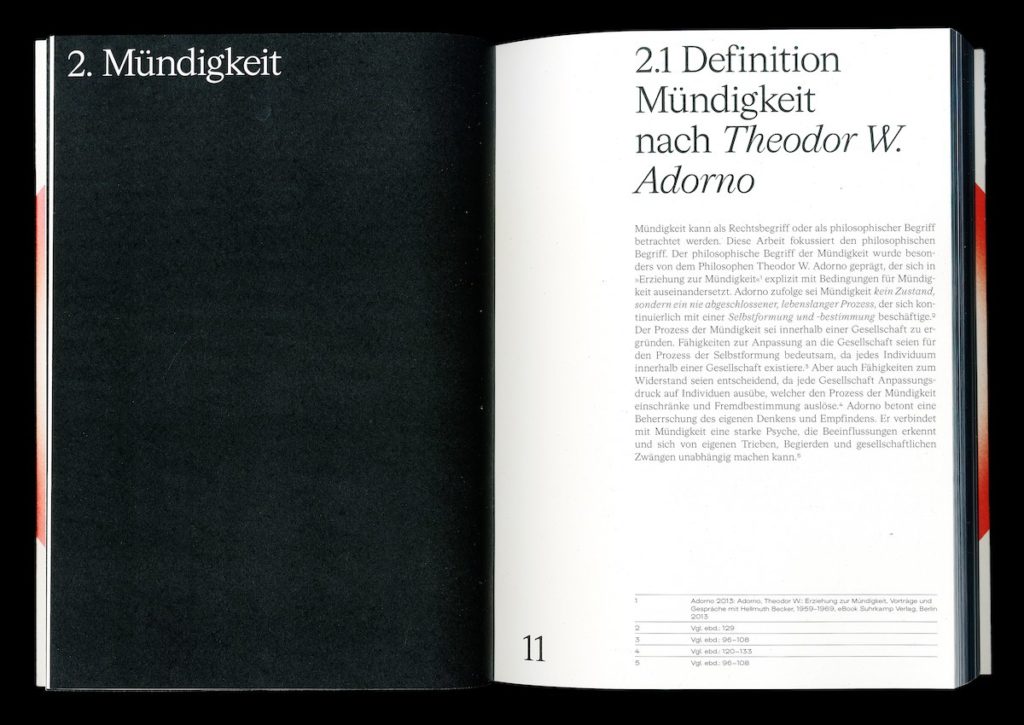
Linda, would you describe yourself as an optimist?
It's funny that you should ask me that. I often argue about this with my boyfriend because I describe myself as an optimist, but he sees it differently. I often confront myself with the worst-case scenario so that I'm not disappointed if it happens, but also so that I'm prepared and able to act. Perhaps I can use the term "optimistic realist" to describe myself.
In your Master's thesis you dealt with the topic "maturity" in your Master's thesis. What is maturity as such for you?
By "maturity" I mean a lifelong process of self-formation in which I as an individual strive to think, feel and act in a self-determined way. As a mature person, I constantly strive to shape my life as I see fit.
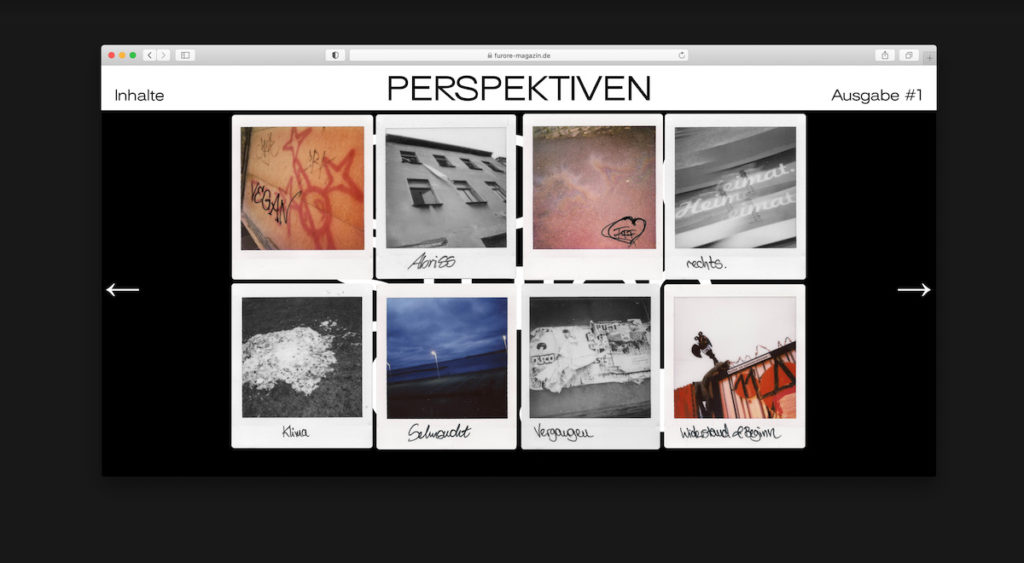

How did you come to this topic?
I have realized that I often feel powerless when I am confronted with news about current social crises, such as the climate crisis, the coronavirus crisis, social crises and the rise of the authoritarian right. All of this paralyzes me and I often feel powerless. These social developments influence my life and limit my ability to shape myself.
Be it the AfD, whose regressive ideas are trying to reshape our society in an authoritarian, patriarchal, racist and nationalist way. Or the climate crisis, which is being played down by many people and will have severely destroyed my environment in just a few years, reducing my chances of shaping my life the way I want to. I ask myself what influence I can have as an individual so that I can protect myself from this and also have the freedom to strive for maturity in the future. I wanted to get to the bottom of this feeling of powerlessness and immaturity and find out which social and individual factors help me to come of age. I wanted to find out how I can influence social processes that affect and control my life. And I also wanted to explore how design can influence maturity.
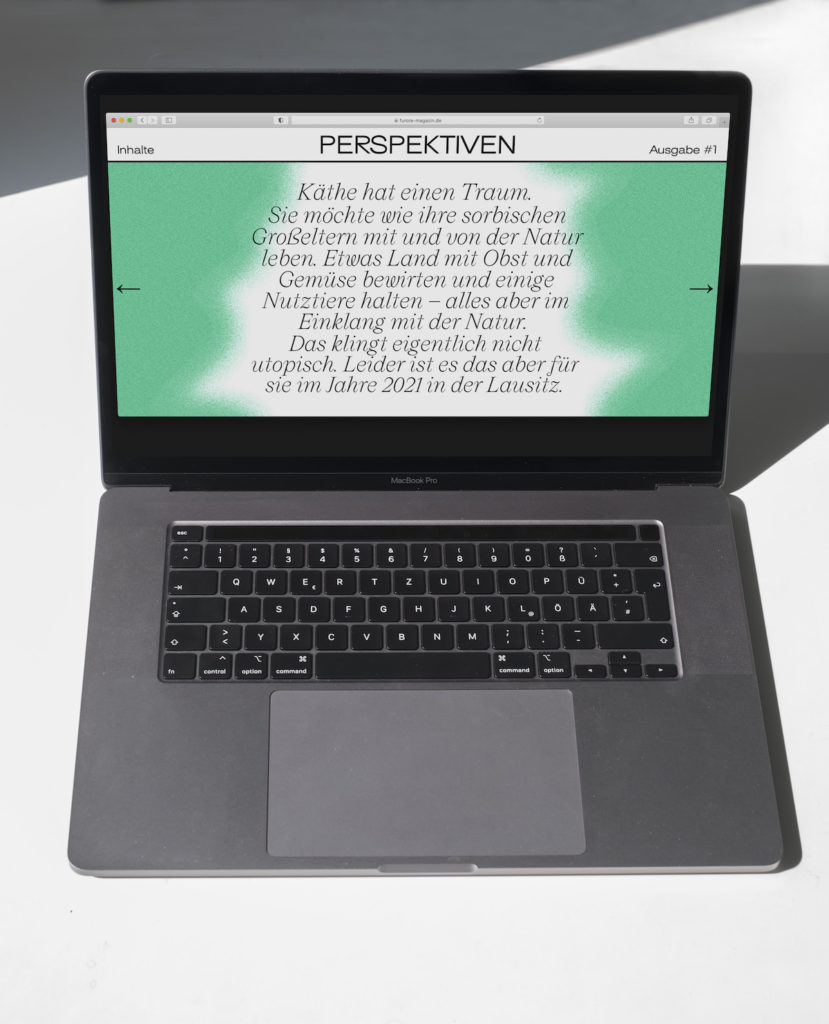
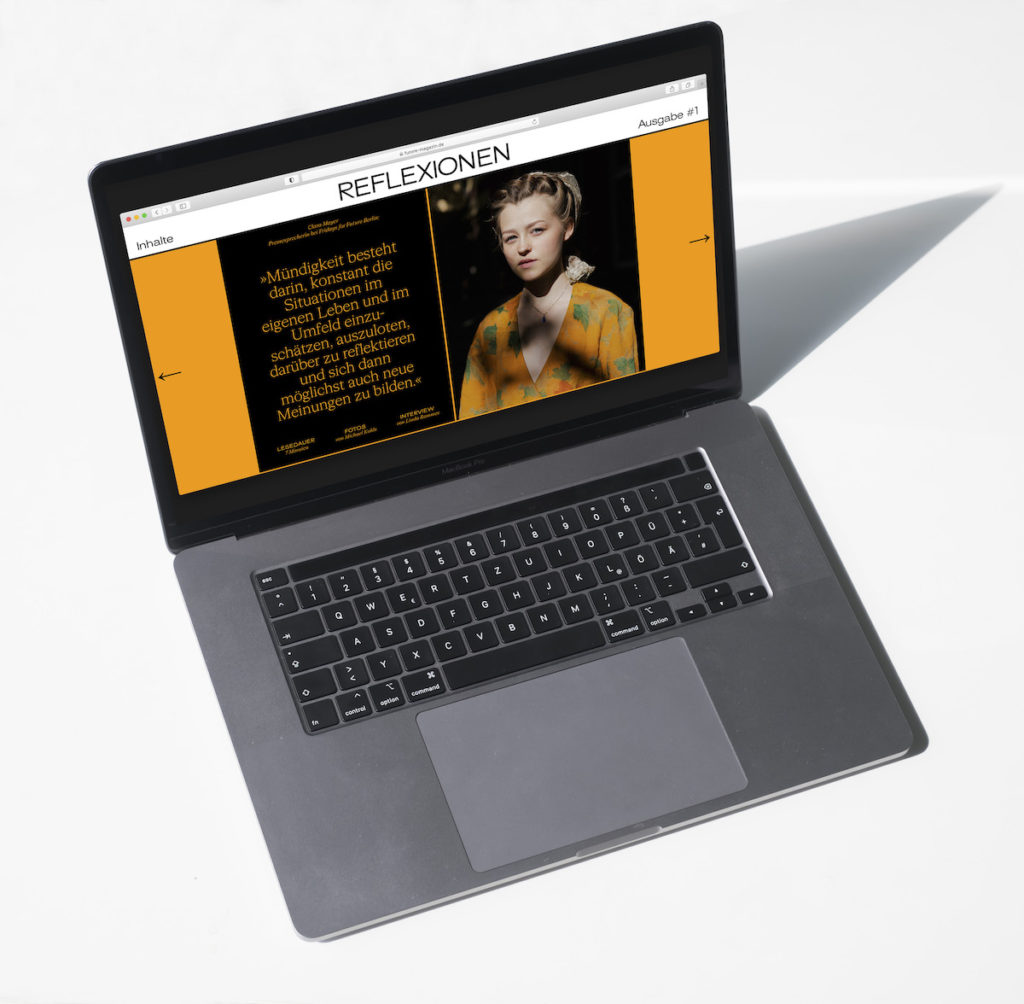
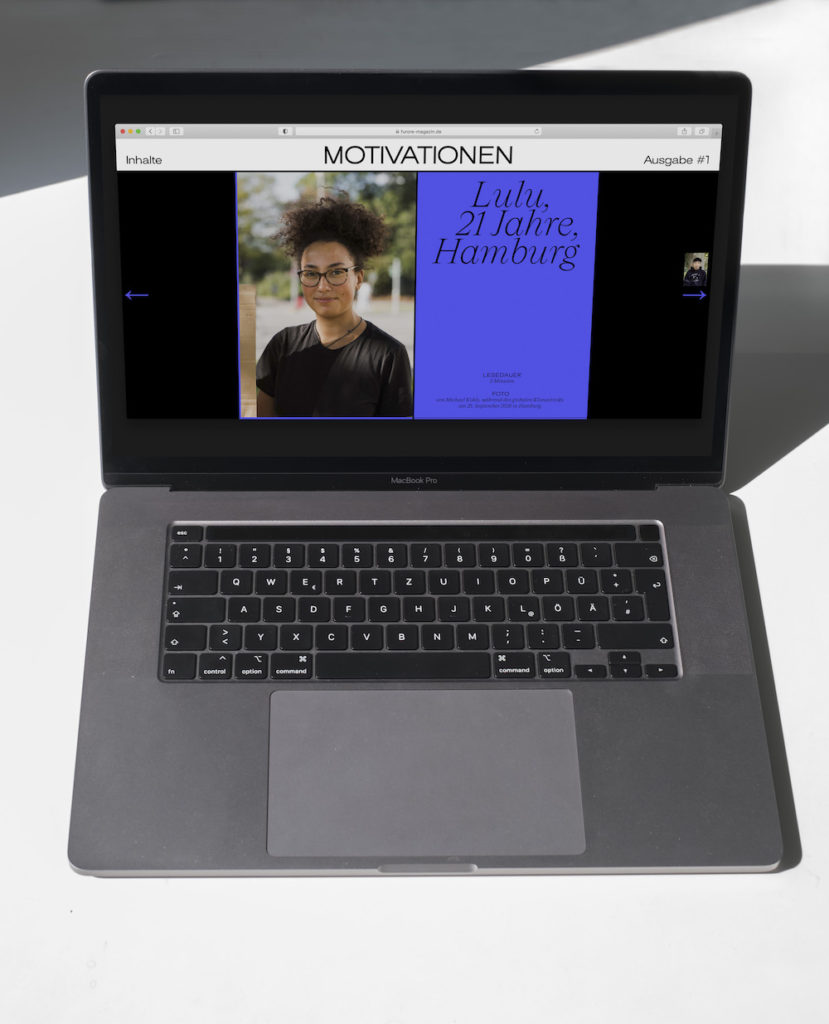
What factors do you think are important in order to come of age?
An open, pluralistic society with flexible power relations and diverse actors is very important for self-formation processes. The nature of society is crucial, as I do not exist in a power-free vacuum in which I alone can decide what I want to do. I am born into a society that strongly predetermines and directs my opportunities to shape myself. There are various influences such as norms, role models, practices and narratives that affect my thoughts, feelings and actions.
These forms of influence can be traced back to members of society - to other actors who have their own ideas about society and life. They all strive to establish their way of life in society by influencing and convincing others. In order to convey their ideas about life, they engage in discourses in which they discuss and negotiate topics with other actors. In the discourses, the actors use certain norms, role models, narratives and practices that reinforce their ideas and influence others.
These forms of influence are always present and do not necessarily have to be problematic. They can even be a help and show me a way of life that I like and that I wouldn't have thought of on my own. What matters is a multitude of diverse actors who convey different ideas. There must not be one powerful group of actors that dominates society with its one idea, but there must be different actors that influence society. Only then can power relations become open and flexible.
Social diversity then allows me to choose between different ideas and I can make an informed decision by consciously deciding for or against something. Today, I am presented with different role models, such as housewife, mother, full-time worker, freelancer, founder, dropout and many more. Compared to the 1950s, my potential to shape myself has increased, as women were dominated by the role of housewife and mother. Today, my opportunities are greater, but there is still room for improvement in terms of diversity.
It is therefore logical that we need a pluralistic society whose citizens behave democratically rather than in a totalitarian manner, so that different life plans can be realized. That sounds like a harmonious society, but it's actually not. In a pluralistic society, there are various actors with sometimes conflicting ideas about life, roles and the associated social order, which can very rarely be reconciled. Hot debates and dissent arise, as each party wants to establish its ideas in society. And if this dissent were to be suppressed, plurality would disappear. That is why a mature society should embrace dissent, dispute, resistance and even protest and consider them valuable. The actors should argue with each other, but not suppress or eliminate each other.
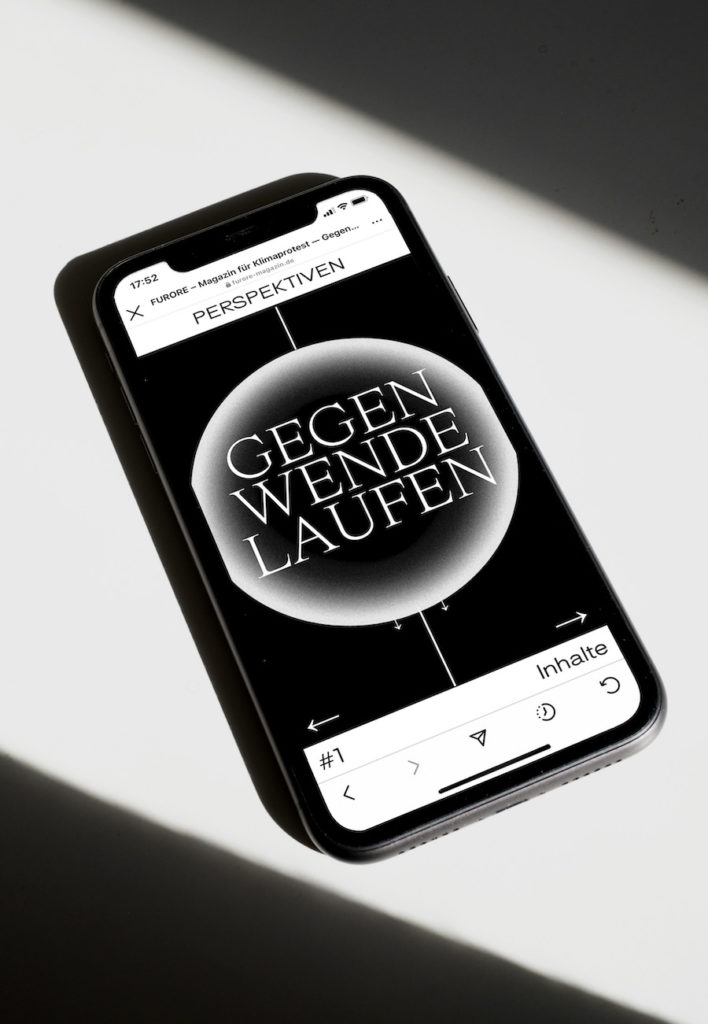
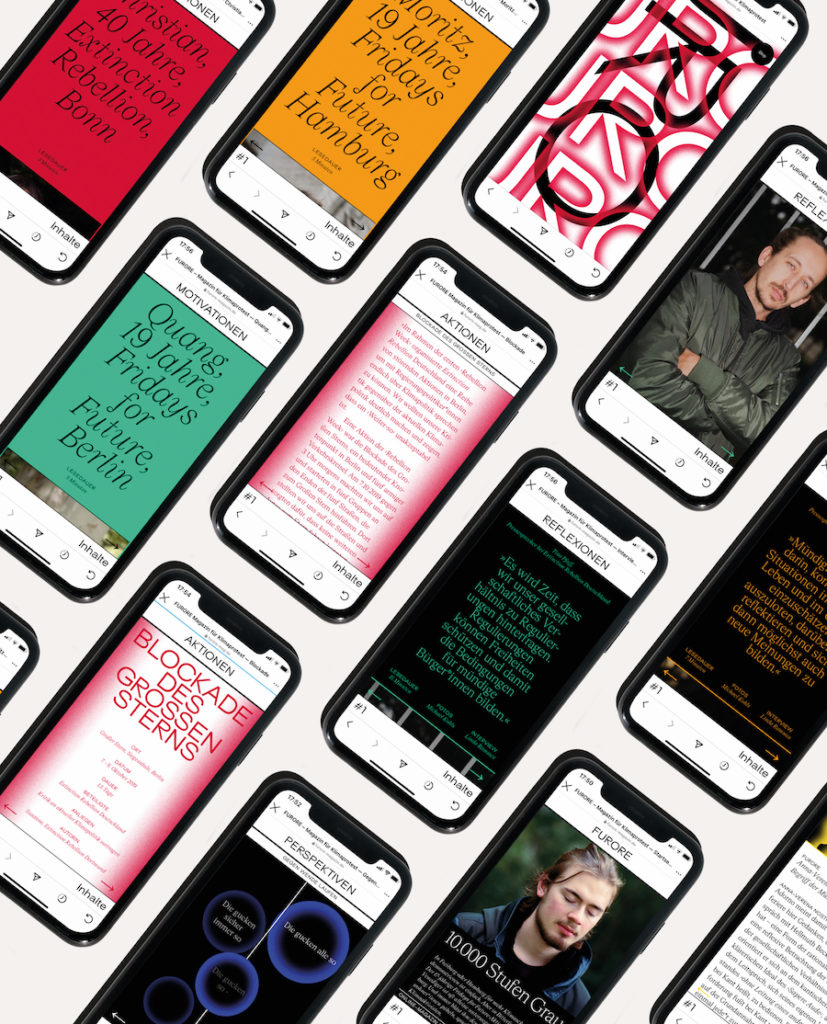
And what individual factors help people to shape themselves?
There are essentially two factors that are important: A strong psyche and the ability to establish one's own ideas in society. A strong psyche is important for maturity, as I should be able to cope with social encroachment. As a first step, I need the ability to reflect critically. I need to be able to critically question my own perspective and the perspectives of others in order to be able to recognize the constant influences. I also need the ability to resist so that I don't allow myself to be controlled by the ideas and actions of others. I need a tolerance for ambiguity - the ability to cope with uncertainty, ambiguous situations and tensions - so that I don't wear myself out with the tensions that arise from social dissent. These are all skills that give me the opportunity to protect myself from society's external regulations.
At the same time, it should not be forgotten that I as an individual can also influence society and shape it with my ideas. Although my influence on society is limited, it is not impossible. In order to shape society, I have to get involved in social discourse and promote my ideas about society and life. If I succeed in convincing many other actors of my ideas - so that they accept them and implement them in their lives - I can have an influence on society.
It is crucial to ally myself with other actors and strengthen a narrative that advances our common ideas. The ability to talk to others, negotiate and convince others can help me do this. These are forms of political participation that offer me the opportunity to anchor my ideas in society.
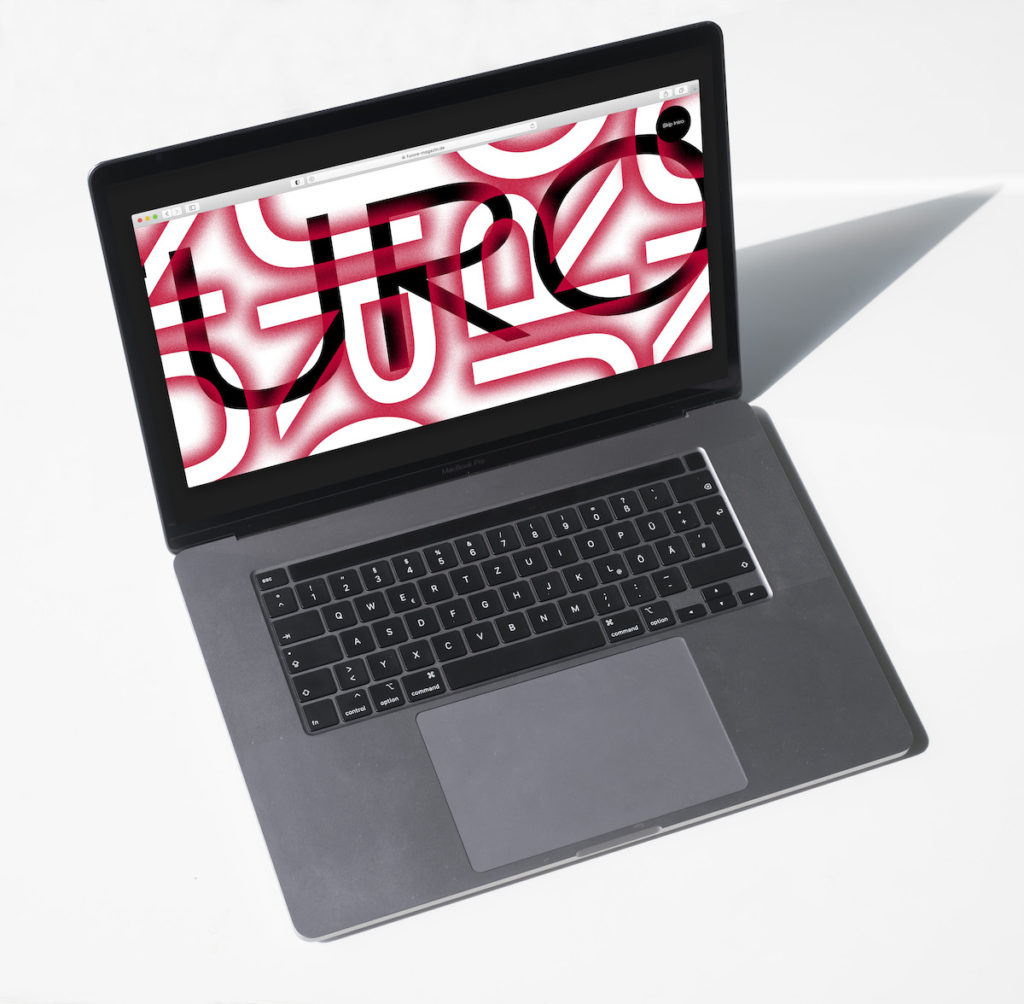

You areyour work is a testament to the term "responsible design". To what extent can design enable maturity?öenable maturity?
Design plays a role in maturity because, as a discursive practice, it participates in discourses that shape our society. We do not only conduct discourses verbally by talking to each other or through texts, but also visually and materially. We designers take part in spreading narratives that benefit certain actors and help to strengthen their power. Because one thing is certain: design is a highly influential, communicative discipline that can inspire and convince people of something - be it for the role of the workaholic, the political actor or for a totalitarian or democratic social order. We create impulses that lead to action, such as buying an SUV, a bicycle or reflecting on my consumer behavior. A design artifact never stands alone, but is embedded in social power relations with its meaning and effect. As designers, we have to be aware of this and ask ourselves: What narrative am I picking up on? Who benefits from my design? And for whom can my design become problematic?
Because it is important to realize this: There is no design that empowers all people equally. By always referencing a narrative, we as designers - consciously or unconsciously - take sides with certain actors who benefit from the narrative. With the concept of "mature design", I mean a design practice that very consciously strengthens the self-determination of selected actors. By this I mean consciously taking sides with a narrative, a certain idea of social order and life. And I also understand it as a design practice that reflects social power relations and creates impulses that contribute to the flexibility and polyphony of conditions. As a designer, it can therefore be a way to support democratic actors whose perspectives and ideas have so far been underrepresented in discourses.
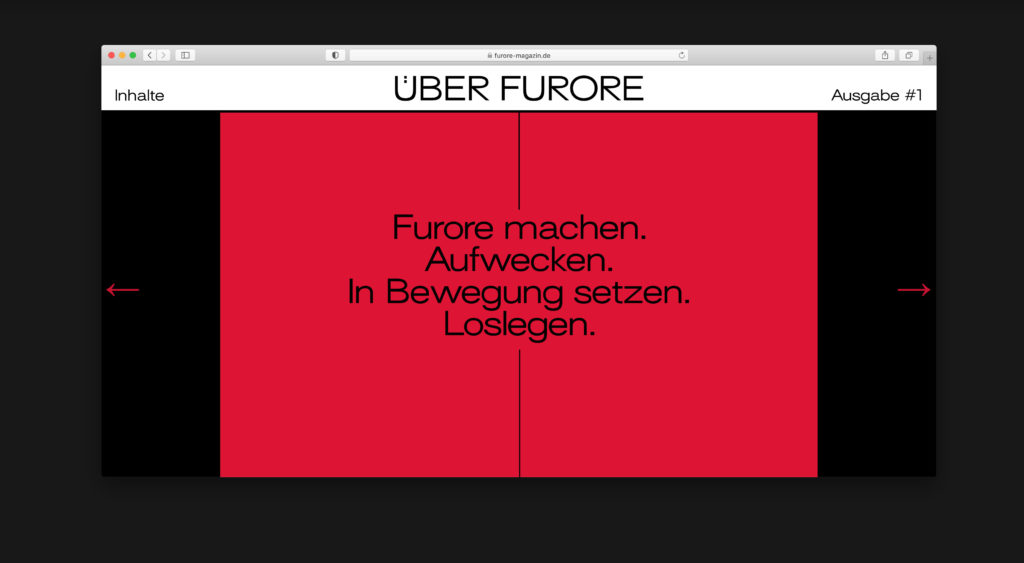
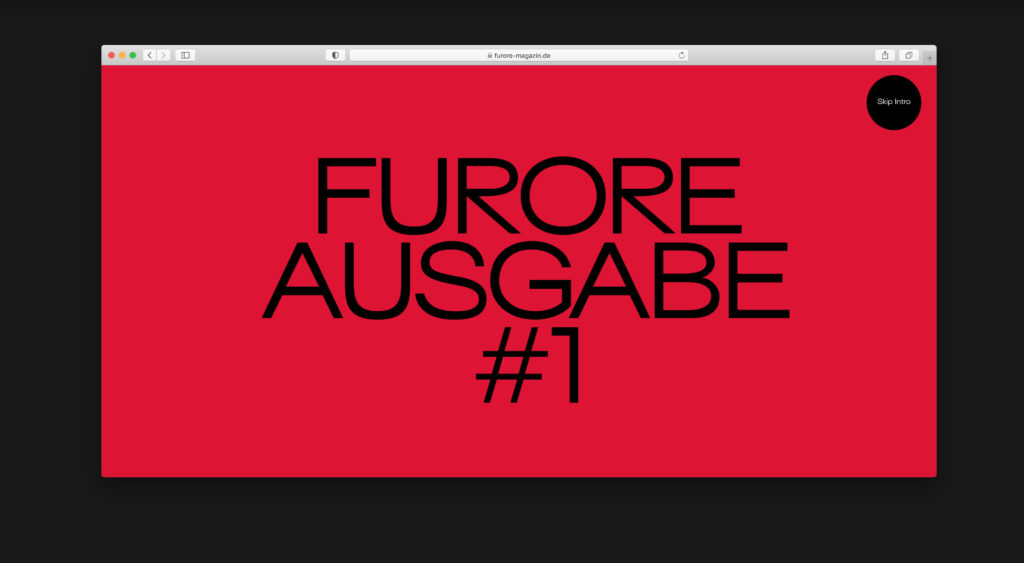
How did the online magazine "Furore" come about?
The idea for FURORE arose from the realization that, as a designer, I can provide impetus for the flexibility of social power relations. On the one hand, I wanted to support actors whose voices are underrepresented. And on the other hand, I asked myself which narratives and social ideas I personally actually benefit from. So I came to the decision that I wanted to start a magazine for climate justice that strengthens the voices of climate activists. Because I'm worried about my future and wonder how the climate crisis will change my life in 20 years. I am currently observing very loud actors who dominate the public discourse by trivializing scientific facts about the climate crisis because they make a profit from or are dependent on the climate-damaging economy. There is still too little reporting on the threat posed by the climate crisis and many have not yet recognized the problem. I would like to intervene in this asymmetrical situation with FURORE.
I then contacted activists from various movements, exchanged ideas with them and developed the magazine's formats together. FURORE's target group is largely the activists themselves, but also those who sympathize with the climate justice movement. FURORE is conceived and designed in such a way that it provides impetus for actions that can empower readers. For example, there are sections that encourage critical self-reflection and present the stories of different people. The magazine is intended to show readers various options for action and potential role models so that different potentials for identification can arise. The aim is to encourage and inspire each other. FURORE is also intended to be a platform for the knowledge of activists, so that experiences of protest actions are collected and made accessible to everyone.
Working on FURORE has been very empowering for me, as I have been able to work with and learn from so many inspiring and committed people. It was exciting to work with the photographers Michael Kohls, Annemie Martin, Barbara Haas and Giorgio Morra, who have been photographing protest movements and the climate crisis for a long time.
Click here for the Furore online magazine





